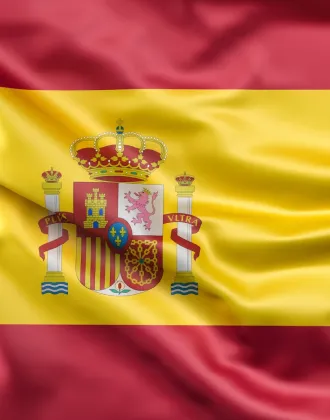
Crypto license in Kazakhstan
Kazakhstan offers excellent opportunities for obtaining a cryptocurrency license and successfully developing business in this field
At present Kazakhstan has established a complete regulatory system for cryptocurrency activity, and the state is actively accepting applications for crypto licenses. On April 1, 2023, the Law on Digital Assets in the Republic of Kazakhstan came into force. The main purpose of this law is to create a legal framework for activities with digital assets in Kazakhstan, which allows controlling their issue and circulation in the state.
Contrary to the ban on the issue and circulation of unsecured digital assets in Kazakhstan, the legislation provides the possibility of their issue and circulation through the Astana International Financial Center (AIFC) as an exception to the general rule.
This will allow to legally conduct cryptocurrency activities on the territory of AIFC with the license “Operating a Digital Asset Trading Facility”.
This license opens new opportunities for cryptocurrency transactions in Kazakhstan, provided that the established rules and restrictions are observed. For example, the legislation requires cryptocurrency companies in Kazakhstan to conduct customer identification, comply with anti-money laundering and anti-terrorist financing measures, etc., by Law No. 193-VII of the Law “On Digital Assets in the Republic of Kazakhstan”.
Companies that have obtained a license for cryptocurrency in Kazakhstan will be able to legally provide services of purchase, sale, and exchange of cryptocurrencies in exchange for fiat money or another cryptocurrency, to accept and transfer payments in cryptocurrency.
This activity will be supervised by The Astana Financial Services Authority (AFSA) – the main financial regulator on the territory of AIFC.

Request more information about the crypto license in Kazakhstan
Advantages of cryptocurrency license in Kazakhstan
Favorable Tax Regime
Crypto license holders in Kazakhstan who provide financial services within AIFC are exempt from tax payments on several income and property taxes until January 1, 2066. This attracts investments and the development of the financial services market without additional tax burdens.
Convenient and fast registration of foreign citizens
AIFC provides a simplified registration regime for issuing visas, work permits, and other procedures on AIFC territory, which makes the process of entry for foreign nationals more convenient and quick. A specialized Expat Center was opened in Kazakhstan, which provides more than 500 services to foreign nationals.
Sustainable Legislative Framework
A robust and sustainable legislative framework has been established in Kazakhstan with regard to cryptocurrency activity. The country’s legal provisions governing this domain have been in place since 2018, and have undergone a single revision in the past 5 years. The implementation of a new law on 1 April 2023 has led to the creation of a comprehensive and contemporary regulatory system that is fully aligned with global benchmarks. It is anticipated that this legislative framework will remain stable for the next 2-3 years.
Simplified currency regime
AIFC participants are exempt from the need to comply with the currency legislation of Kazakhstan on registration of currency transactions, notification of their implementation, opening accounts in foreign banks, and other similar rules. Under this regime, AIFC participants can fulfill their obligations in any currency stipulated by the contract.
Simplified visa and labor regime
Employees of bodies and participants of AIFC, as well as their family members, can enter Kazakhstan under a special visa regime for up to 5 years and do not need a work permit for foreign employees. This makes it possible to attract highly qualified foreign specialists to develop the financial sector.
Ensuring security and transparency of financial markets
AFSA regulates financial and market services in AIFC, ensuring the safety and soundness of the financial system and the legal protection of AIFC participants. And also facilitate the process of interaction with foreign citizens and companies.
Service packages for registration of crypto license in Kazakhstan
License for crypto related activity in the Astana International Financial Centre (AIFC)
Full set up of VASP business with all the necessary infrastructure, connection to KYC providers, local substance, and accounting services
- Full turnkey company formation
- Set of corporate documents
- Full set of policies for license application
- License application assistance
- Local address registration
- Corporate account opening assistance
- Local AML Officer employment
- Director employment
- Annual report
- Audit
- Accounting for 1 year
- Local office search and registration
- KYC/KYT integration and provider principle adaptation
Exhaustive set up of company infrastructure for the start of operational activity
- Full turnkey company formation
- Set of corporate documents
- Full set of policies for license application
- License application assistance
- Local address registration
- Corporate account opening assistance
- Local AML Officer employment
- Director employment
Registration under the minimum regulatory requirements
- Company formation
- Basic Corporate documents
- Set of standard policies for license application
- License application assistance


Requirements to obtain a cryptocurrency license in Kazakhstan
To obtain a crypto license in Kazakhstan, it is necessary to comply with certain rules:
- Companies operating under the AIFC must register a legal entity and open a business account with a bank in Kazakhstan. In addition, it is required to have the local legal address registration.
- An amount equal to six months of operating expenses must be contributed to the company’s share capital.
- Mandatory availability of certain human resources, such as Senior Executive Officer, Finance Officer, Chief Technology Officer, and Director. The client can take all these positions on his own if he has the relevant education and experience. No country residency is required.
- Hire local employees for Anti Money Laundering Officer, Compliance Officer positions. At the time of license application, these positions can be held by one employee, but later, the regulator may require them to be divided between two people.
- The company must have internal rules and policies that meet the standards of the International Finance Commission to regulate crypto exchanges.
- Cybersecurity requirements must be followed to protect against hacking, theft, and other cyber threats.
- The business must develop and submit documents describing business processes, such as a business plan that contains financial projections for 3 years, as well as an exit strategy.
- To obtain a license for cryptocurrency in Kazakhstan, it is necessary to have a developed digital platform that meets the requirements of the International Finance Commission, including customer identification and the ability to block transactions in case of suspicious transactions.
- The company must provide documents confirming the legality of the origin of funds to be used for cryptocurrency transactions.
- Establish customer identity verification (KYC) procedures, as well as terrorist financing prevention (CFT) and anti money laundering (AML) procedures by the current legislation of Kazakhstan No. 191-IV “On Counteracting Money Laundering and Terrorist Financing”.
- Regular reporting to the AFSA and annual audits are mandatory to ensure compliance with all applicable laws and statutes.
To register a company with the AIFC, the following documents and data are required:
- A description of the activities to be performed by the company.
- Proof of payment of the registration fee of USD 300.
- Business Plan and Financial Plan, which should indicate the expected income and expenses of the company.
- Individual Identification Number (IIN) for the director of the company.
- Passports for all members of the company.
- The lease agreement for premises on the AIFC territory which will be used as the company’s registration address.
According to Articles 8, 10, 11 of Law No. 193-VII RK Law. “On digital assets in the Republic of Kazakhstan,” requirements to exchange digital assets and the process of their licensing are determined by the acts of the Astana International Financial Center. It is also important to pay attention to the basic provisions of AFSA (Astana Financial Services Authority).
Process and timeline for obtaining a crypto licence in Kazakhstan (AIFC)
COLLECTION OF PRELIMINARY DOCUMENTS
Stage 1
Documents required:
- Preferred company name
- Passport copies from all shareholders and directors
- Utility bills from all shareholders and directors
- CVs of shareholders and directors
- A business model of the company/Business plan
- Financial plan of your company for 1 year period
LICENSING
Stage 2
- Determination of suitable license type
- Preparation of all related documentation
- Submission of application to AFSA
- Communication with AFSA and assistance with additional requests
- License approval
COMPANY REGISTRATION
Stage 3
- Company registration
- Preparation of corporate documents
- Employment of local employees
- Set up of accounting services
CORPORATE ACCOUNT OPENING
Stage 4
- Analysis of the most suitable Banks/EMIs, comparison of the risk appetite of the Bank in relation to the risk appetite of the Client based on previously prepared AML policies
- Collection of necessary documents from the Client side to initiate the process (flow of funds, source of wealth, description of the purpose of opening an account, key partners, company website, utility bill, etc.)
- Guiding the Client’s company through the entire process of opening an account
Find more information about the crypto license in Kazakhstan
Overview of Crypto Regulation in Kazakhstan
| Project time frames | 6-7 months |
| State fee for application | 70 000 USD |
| Required share capital | 100 USD |
| Corporate income tax | 20% |
| Annual supervision fee | 35 000 USD |
| Local staff member | AML Officer |
| Physical office | Required |
| Accounting audit | Required |
| Sustainability | Sustainable |
| Bank account options | Midshore EMIs |
Cryptocurrency licensing legislation in Kazakhstan
On April 1, 2023, the law `”On Digital Assets in the Republic of Kazakhstan`” came into force, which was previously adopted by the Parliament of Kazakhstan with amendments. The main purpose of this law is to create a legal framework for the development of digital assets, which will regulate their issuance and circulation in the country.
The Law sets out the following objectives: licensing and regulating digital asset companies, reporting the income of crypto-exchanges and digital miners for taxation purposes, and establishing rules for the operation of digital asset exchanges and state control of digital assets.
For legal cryptocurrency activities in Kazakhstan, you will need to apply to the AFSA for a license called ‘Operating a Digital Asset Trading Facility’.
This type of license allows you to provide exchange, purchase, or sale services for:
a) digital assets into fiat currencies;
b) Digital assets for other digital assets;
c) Storage of digital assets*.
A cryptocurrency license in Kazakhstan is issued for 2 years, after which an annual renewal fee must be paid. The renewal fee is $35,000 and may vary depending on the nature of the activity.
Particular attention should be paid to Article 11 of this document. It states that unsecured digital assets are not recognized as financial instruments or financial assets in the Republic of Kazakhstan, except as provided for in the laws of the country. In addition, the issuance and circulation of unsecured digital assets and the operation of digital asset exchanges for unsecured digital assets are prohibited in the Republic of Kazakhstan, except for the Astana International Financial Centre (AIFC).
This means that only transactions that take place in the Astana International Financial Centre (AIFC) fall under the regulation of the AIFC. Therefore, restrictions on cryptocurrency trading should not be imposed under general law as long as the relevant entity or company operates within the AIFC. In such circumstances, residents of Kazakhstan should be able to own, buy and sell cryptocurrencies by the rules of the AIFC.
An entity is also deemed to be operating in the AIFC if it conducts its business through a company established under AIFC law and operates it daily, even if the activity is conducted partly or wholly outside the AIFC.
Regulation of Cryptocurrency exchanges in Kazakhstan
Over the past five years, Kazakhstan’s legislation relating to cryptocurrency activity has transformed. In 2018, the Law on Amendments and Additions to Certain Legislative Acts of the Republic of Kazakhstan on Financial Regulation, which amended the Law on Securities Market, on the National Bank of the Republic of Kazakhstan, and other legislative acts, was passed.
The National Bank acted as a regulator of the cryptocurrency market and issued licenses based on several requirements and standards, such as having sufficient capital, compliance with anti-money laundering (AML) and counter-terrorist financing (CFT) requirements, use of secure cryptocurrency storage methods, and others.
In 2020, Kazakhstan created the Digital Financial Assets Act, which regulates the use and circulation of digital financial assets, including cryptocurrency, and establishes procedures for their regulation and supervision.
From 1 April 2023, Kazakhstan’s Ministry of Digital Technology issues licenses for cryptocurrency. This allows companies to legally conduct cryptocurrency activities within AIFC.
The Astana International Financial Centre (AIFC) is an area in the city of Nur-Sultan (formerly Astana) designated by the President of the Republic of Kazakhstan. It is subject to a special legal regime in the financial sector, which was established by the Constitutional Law of the Republic of Kazakhstan “On the Astana International Financial Centre”.
The main regulator in the jurisdiction of the AIFC is the AFSA. It was established on 1 January 2018 as an independent regulator within AIFC. The main task of the AFSA is to regulate financial services and related transactions that take place in the Astana International Financial Centre.
AFSA is the regulator of both financial and non-financial services. The regulator oversees the activities of the Centre’s participants, which provide financial and ancillary services, as well as capital markets activities in the AIFC.
Institutions that have been registered and licensed by AFSA are referred to as ‘Members of the Centre’. To become a Member, one must have a physical presence within the AIFC, but services can be provided to clients throughout the whole country, subject to AFSA regulations. Members may also operate outside Kazakhstan but must comply with the laws of the other country.
AFSA supervises and empowers all members, their directors, and key employees (referred to as “Approved Persons”) to perform supervised functions. If necessary, AFSA may take enforcement action against participants in the Centre.
Taxation of Cryptocurrencies in Kazakhstan
The Code of the Republic of Kazakhstan `”On Taxes and Other Obligatory Payments to the Budget`” (Tax Code) establishes the tax regime in the territory of Astana International Financial Center (AIFC), except for those cases specified in Article 6 of the Constitutional Law of the Republic of Kazakhstan `”On Astana International Financial Center`”. Under these exceptions, participants of the AIFC licensed to provide financial services on the territory of the AIFC enjoy tax exemptions for CIT and VAT.
- VAT (value-added tax) or CIT (corporate income tax) must be applied to the income that is earned during the provision of a financial service within the AIFC. However, the service provider must be licensed by the AFSA to be eligible to apply the zero tax rate.
- CIT is levied on profits that were earned during the provision of legal, audit, accounting, or consulting services to the AIFC bodies. In addition, income received by participants of the AIFC, which provided financial services by Article 6(3) of the Constitutional Law of the Republic of Kazakhstan “On International Financial Center Astana”, is subject to taxation.
- In order not to pay income tax (CIT), AIFC participants should adhere to the Regulation on separate accounting: income that is exempt from tax; income that is subject to tax; expenses that can be attributed to deductions.
- Under Articles 6 (3) and (4) of the Constitutional Law, AIFC participants providing financial and ancillary services are required to pay property tax and land tax on facilities located on AIFC premises.
- Foreign individuals working for AIFC participants and providing financial or ancillary services are exempt from paying tax on income received from their activities in AIFC on the basis of an employment contract concluded. The list of financial and ancillary services provided by AIFC participants is specified in Article 6, paragraphs 3 and 4 of the Constitutional Law. It also lists the financial and ancillary services provided by AIFC participants.

FAQ about crypto license in Kazakhstan
Is cryptocurrency legal in Kazakhstan?
Yes, cryptocurrency is legal in Kazakhstan. Back in October 2017, the Kazakh Agency for Financial Market Regulation and Development issued a statement stating that cryptocurrencies are not illegal in Kazakhstan. And as of April 2023, Kazakhstan’s Ministry of Digital Technology began issuing cryptocurrency licenses, allowing the relevant activities to be conducted legally.
How to get a cryptocurrency license in Kazakhstan?
Cryptocurrency licenses in Kazakhstan are issued exclusively by the AIFC and all companies fall under the control of the financial regulator AFSA. You need to apply to the regulator together with the necessary documents, a business plan, and details of cryptocurrency-related business activities, as well as meet all the requirements set by the legislation.
What license is required to register a crypto exchange in Kazakhstan?
To register a cryptocurrency exchange, you will need to obtain a license in a separate jurisdiction of the AIFC called Operating a Digital Asset Trading Facility and Providing Custody. This type of license will allow you to provide services for exchanging, storing, buying, or selling digital assets for fiat currencies or other digital assets.
How much does a cryptocurrency license cost in Kazakhstan?
The cost of obtaining a cryptocurrency license in Kazakhstan depends on its type. For example, to obtain an “Operating a Digital Asset Trading Facility” license, you need to pay a state fee of $70,000 (can be reduced to $7,000) upon application and then pay an annual renewal fee of $35,000 (can be reduced to $3,500).
For how long are crypto licenses issued in Kazakhstan?
Cryptocurrency licenses in Kazakhstan have a limited validity period of two years. After this period expires, an annual renewal fee must be paid.
Explore other Crypto Licences
Connect with our experts
Our experts will tell you how to do it as quickly and easily as possible.
By clicking the button, I confirm that I have read the privacy policy and consent to the collection and processing of my personal data in accordance with the GDPR rules.
to our news & insights
















